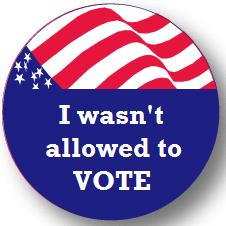New NC voting law already stopping would-be voters

North Carolina's restrictive new voting law is already preventing citizens from casting ballots.
After serving in the U.S. Marine Corps for 22 years, Bryan McGowan moved to the mountains of North Carolina this year. McGowan had lived in the state previously while stationed at Camp LeJeune and was familiar with the state's old policy of same-day registration during early voting. McGowan knew he had to re-register at his new address before voting and intended to do so when he went to vote early the first day he could, on Oct. 23. But he didn't know North Carolina had ended same-day registration. So when he showed up at the polls, the poll workers did not let him cast his ballot.
"I was told I couldn't register [during early voting], and if I hadn't registered already, I couldn't vote," McGowan said. "It doesn't matter if I'm a Democrat or a Republican -- I can't vote."
Amber Alsobrooks has lived in North Carolina her entire life and is studying to become a psychological health professional. She and her husband own a house in Orange County, where she has voted in the past, but she had re-registered in Watauga County in 2012 while she was studying at Appalachian State University.
On Oct. 25, Alsobrooks and her husband went to the polls to vote early. In the past she'd been able to change her registration during early voting. But the election workers told her that state law did not allow her to vote in Orange County -- or in Watauga, where she was still registered.
"I'm legally not allowed to vote in a state where I've lived the 42 years of my life," Alsobrooks said.
Alexandria Lane has voted in every election since she turned 18 -- except one municipal election when she was volunteering in Japan to provide disaster relief after the 2011 tsunami. After graduating from UNC-Chapel Hill, Lane moved to Virginia for two years before moving back to North Carolina. This May, Lane went to the N.C. Division of Motor Vehicles to get a new driver's license and registered to vote there.
But when she went to vote early on Monday, Oct. 27, she was told the poll worker could not find her name on the list. Lane had done everything right to register to vote but her registration was somehow lost. She cast a provisional ballot, but it's uncertain whether it will be counted.
"If this had been three years ago and this had happened, I would've been able to change my registration and vote," Lane said.
These stories are some of the first to emerge of how North Carolina's new voting law is preventing would-be voters from casting ballots.
Last year, the North Carolina legislature passed H.B. 589, the Voter Information Verification Act. The law shortened early voting, eliminated out-of-precinct voting, and will require voters to present an ID to vote beginning in 2016.
The law also ended same-day voter registration, which allowed any voter to register and to vote at the same time during North Carolina's early voting period. Before the 2013 law, McGowan, Alsobrooks, and Lane all would have been able to register to vote during early voting and to cast their ballots.
Critics have charged that the law unconstitutionally erects new barriers to voting and hits people of color and young voters the hardest. Same-day registration, early voting, and out-of-precinct voting were used disproportionately by African-American voters. Studies by the Government Accountability Office and others have also found that voter ID requirements disproportionately affect people of color and young voters.
After a legal battle to block the law, including a ruling by the federal Fourth Circuit Court of Appeals that found it was likely unconstitutional for discriminating against people of color, the U.S. Supreme Court decided on Oct. 9 that the law should be enforced for this election. The full trial on the law's constitutionality will likely take place in July 2015.
Effects of the new law are likely broad
McGowan, Alsobrooks, and Lane are just three of the more than a dozen North Carolina voters that staff at the Southern Coalition for Social Justice have spoken to who have been denied their right to vote because of the new law. SCSJ is a legal nonprofit challenging the law in court and running poll monitoring and voter protection hotlines this election.
McGowan, the Marine veteran, said he did not know he had to register to vote by the Oct. 10 deadline and was frustrated that there was so little publicity about the change in election rules."I haven't seen anything about, ‘If you're voting on Nov. 4 or voting early, you need to register by the 10th of October,'" he said.
Lane is upset that she could have been denied her right to vote through no fault of her own and began to wonder what other mistakes election officials had made. "I looked back at my previous registration, and when I turned 18 and registered to vote they misspelled my name -- and they never stopped me from voting," she said.
Supporters of North Carolina's new election law argue that it will prevent voter fraud. But in-person voter impersonation -- the only kind of fraud that might be prevented by requiring photo IDs or ending same-day registration -- is virtually non-existent. In North Carolina, the state elections board turned over only two cases of voter impersonation to prosecutors between 2000 and 2012.
Alsobrooks worries that hers is only one of many similar stories -- and that few people who have been unable to vote under the new rules will have the chance to share what happened to them.
"The vast majority of people who are really being harmed by [the new law], we'll never hear about," she said.
